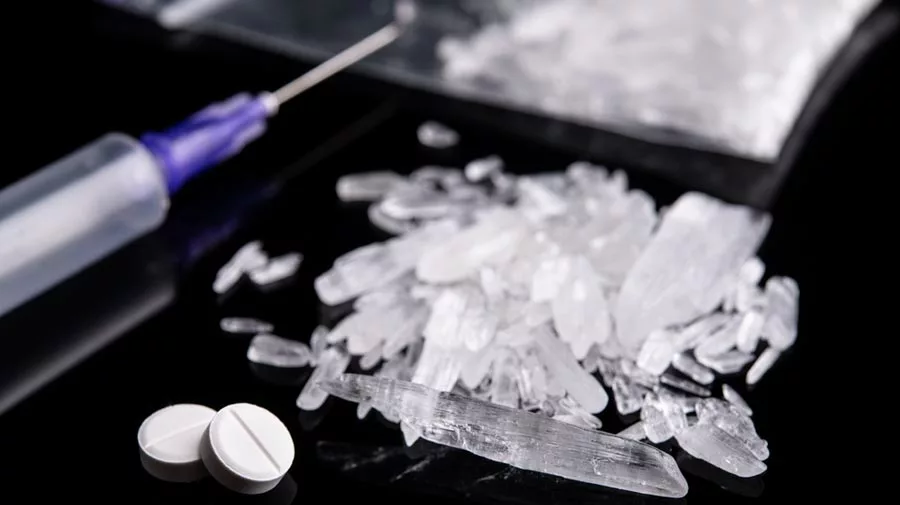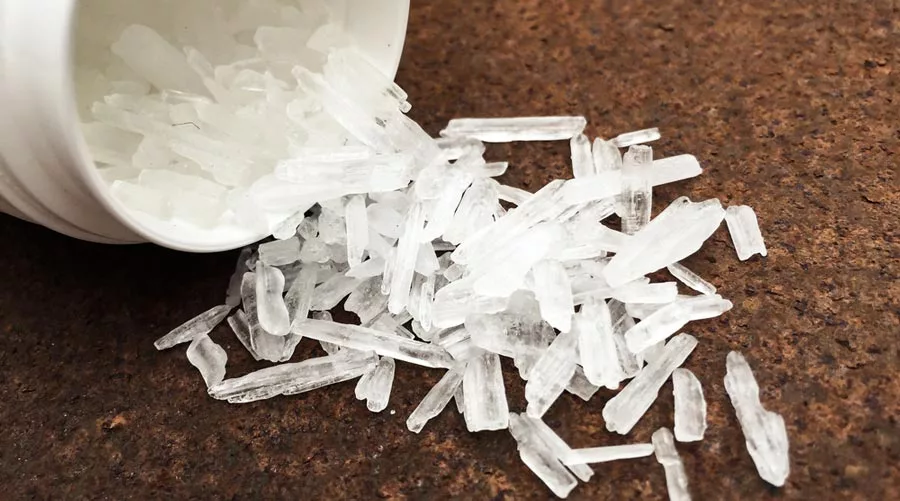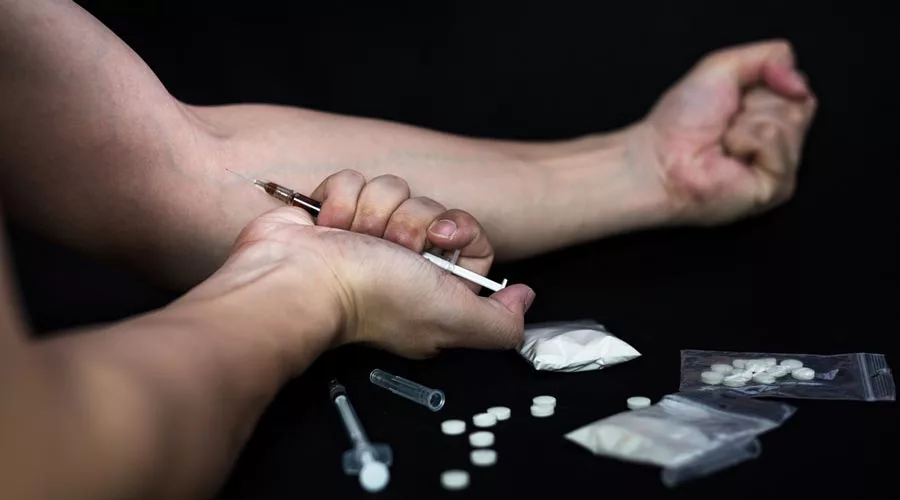Can Meth Lead to Liver Cancer or Lung Cancer? A Closer Look
While I was out running and gunning during my addiction, opiates seemed to be the “hot thing”. However, with so many people overdosing and not being able to keep up financially with their addiction, there seems to be a different drug that is taking over the streets today. Methamphetamine now forms a growing trend and even seems to be passing opiates as the most popular drug of abuse today.
As it grows in popularity again, many side effects are being discovered, and it can be hard to separate the myths from the realities on questions like: does meth cause cancer?
In this blog post, I am going to attempt to explain what exactly crystal meth is, why it is so popular today, and break down the debate of if meth can lead to cancer. I will also talk about solutions and treatment for you with us here at South Shores Recovery if you are struggling with meth abuse.
What Exactly is Meth?
Meth. Tina. Speed. Christina. Crank. Crystal. Ice. Whatever you want to call it, ever since the tv show Breaking Bad, crystal meth seems to be everywhere a drug addict looks. It’s cheap, can be made anywhere, and seems like it’s everywhere for anyone looking for a cheap, quick high. Based on the news, it seems like you can find a meth lab or laboratory in almost any lower-class neighborhood, particularly in the southern states.
Methamphetamine is a powerful, highly addictive central nervous system stimulant. It is an amphetamine, very similar to the popular ADD medication, Adderall. In lower and moderate doses, meth can elevate mood with a huge burst of dopamine production in the brain.
It can also cause an increase in alertness, concentration, and energy in fatigued individuals, reduce appetite, and promote weight loss. At higher doses or for those sensitive to its effects, it can induce a stimulant-based psychosis.
Why is Meth Becoming Popular Again?
So why has crystal meth become so popular over these last few years? Well, for one it has a lower price than most drugs. Instead of paying $60 to 150 dollars for a gram of cocaine, individuals can purchase a gram of meth for 20 to 60 dollars.
Meth’s low cost is in part due to it being a chemical-based product that can be manufactured anywhere and from relatively easy-to-find ingredients and harmful chemicals. Meth labs can be found all over the country, particularly in rural communities.
Another factor is today’s meth is much stronger than even just a few years ago. According to the National Institute on Drug Abuse, overdose deaths involving meth nearly tripled from 2015 to 2019.
Meth was once identified strongly with homosexual subcultures and rural tweakers but has now spread so rapidly that you can find it pretty much everywhere and used by everybody.
When Meth Use Gets Long-Term the Effects Pile Up
Chronic high-dose use of meth can precipitate an array of adverse health effects, such as unpredictable and rapid mood swings, paranoia and hallucinations, and even sometimes violent behavior. Recreationally, meth’s ability to increase energy and lift the user’s mood with incredible bursts of dopamine help make it very addictive.
Meth users will sometimes stay up for days, continuing to get high day after day. Another very popular use of meth is to increase sexual desire and it continues to be very popular in the gay community for this reason.
Mounting Side Effects and The Realities of Meth Withdrawal
Meth is highly addictive, and many long-time users experience pronounced meth withdrawal symptoms upon trying to stop using. Symptoms of withdrawal from meth use can include fatigue, anxiety, irritability, lack of energy, weight gain, dehydration, chills, insomnia followed by hyper-insomnia (sleeping too much), dysphoria (low mood) and depression, inability to think clearly, anhedonia (loss of ability to feel pleasure), and drug cravings.
Post-acute withdrawal can last for many months after the last use. Although not quite as physically addicting as some drugs, and other substances such as opiates and alcohol, mental addiction can be just as powerful.
Can a Drug Addiction Lead To Cancer?
Substance abuse can be connected to many different health issues, such as lung and heart disease, mental health conditions, lowered immune systems, and even cancer. Drug use has recently been linked to an increased risk of developing cancer, particularly in the form of hepatocellular carcinoma (a form of liver cancer).
Why is this? Well, drugs can damage cells and disrupt normal functions of the body and can sometimes lead to the growth of cancerous tumors.
The risk of developing cancer varies depending on the drug. Drugs such as alcohol and tobacco have been definitively linked to an increased risk of cancer. According to the American Cancer Society, substance abuse and addiction in some form contribute to about 30% of all cancer deaths. Tobacco, for example, is linked to 80% of all lung cancer deaths.
Stimulant and Meth Users are Exposed to Risk Factors for Cancer
There is also strong evidence showing that abuse of alcohol and several substances can lead to various types of cancer, most often oral, liver, and colon cancer. In addition, drugs such as cocaine and heroin can often be mixed with cancer-causing cutting agents.
Drug addiction increases the risk of cancer when carcinogenic substances such as tobacco and alcohol are mixed, furthering the risk of cancer even more. The potential for alcohol to cause cancer is so pronounced that the Surgeon General has recommended adding a warning label above and beyond current labelling.
The Meth And Cancer Connection
Methamphetamine use has been linked to an increased risk of cancer. The exact way that meth can cause cancer is not completely clear, but a few risk factors are seen as potential reasons. Meth use has been linked to chronic inflammation which can be conducive to tumor growth.
Meth has also been shown to cause DNA damage, which can increase the risk of cancer. And lastly, it can weaken the immune system, making it tougher to fight off cancer cells.
Ongoing Studies and the Correlations Found
Methamphetamine, it can be argued is one of the most damaging drugs to the human body. “We know that methamphetamine influences cellular processes associated with aging, its affects spermatogenesis, and it impacts the heart.
One could almost call meth a perfect storm toxin because it does so much damage to so many different tissues in the body,” said University of Illinois department professor Barry Pittendrigh.
There have been several studies that have looked at the idea that meth can cause cancer. These studies have identified several different types of cancer associated with meth use. The University of Hawaii Cancer Center found connections between meth use and head and neck cancer.
The Journal of Addiction Medicine found meth use was linked to an increased risk of testicular cancer. Finally, the Journal of Oral Pathology and Medicine found that smoking meth may increase the risk of oral cancer.
What About Injection Drug Use And Cancer Risks?
As someone who was an IV drug user, the needle can be almost just as addictive as the drug. However, using any drug intravenously can be extremely dangerous. Injected drugs increase a person’s risk of hepatitis B and C. Hepatitis C has been linked to chronic liver infections.
These infections leave a person more susceptible to liver damage. This damage to the liver can raise a person’s risk of liver cancer.
The Lifestyle of Meth Abuse and a Lack of Self-Care
Long-term users of meth usually find a detrimental lifestyle marked by severe physical and mental health decline. Users can often experience extreme and unhealthy weight loss, dental issues (often referred to as meth mouth), skin problems, erratic sleep patterns, and neglect of personal hygiene.
Not only that the addictive nature of meth leads to a decline in self-care, neglect of responsibilities, and strained relationships.
Meth becomes the number one priority. Researchers found that exposure to meth caused molecular pathways associated with energy generation, sugar metabolism, sperm cell function, and cell structure to have impaired function or to cease activity altogether.
Get Answers and Resources to Help Overcome Meth Abuse Now
Methamphetamine addiction can be tough to overcome. If you or someone you love are struggling with meth abuse, there is help out there; you don’t have to do it on your own.
Here at South Shores Recovery, we are waiting to help. Let us help you get your life back and live a healthy, substance-free life.
Make the confidential call today and get support for meth recovery and help reverse the damages it can cause now!




